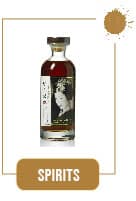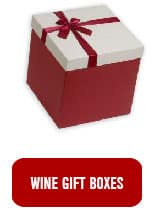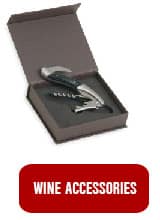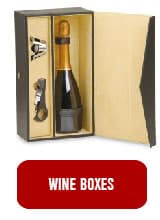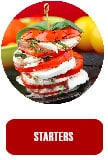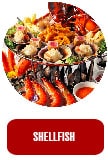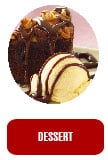No products
- 1907
- 1918
- 1924
- 1925
- 1929
- 1931
- 1933
- 1934
- 1937
- 1938
- 1939
- 1940
- 1941
- 1942
- 1943
- 1944
- 1945
- 1946
- 1947
- 1948
- 1949
- 1950
- 1951
- 1952
- 1953
- 1954
- 1955
- 1956
- 1957
- 1958
- 1959
- 1960
- 1961
- 1962
- 1963
- 1964
- 1965
- 1966
- 1967
- 1968
- 1969
- 1970
- 1971
- 1972
- 1973
- 1974
- 1975
- 1976
- 1977
- 1978
- 1979
- 1980
- 1981
- 1982
- 1983
- 1984
- 1985
- 1986
- 1987
- 1988
- 1989
- 1990
- 1991
- 1992
- 1993
- 1994
- 1995
- 1996
- 1997
- 1998
- 1999
- 2000
- 2001
- 2002
- 2003
- 2004
- 2005
- 2006
- 2007
- 2008
- 2009
- 2010
- 2011
- 2012
- 2013
- 2014
- 2015
- 2016
- 2017
- 2018
- 2019
- 2020
VINTAGES
Guide to Choosing the Right Wine Vintage
Choosing a vintage is key to enjoying a wine at its best. The vintage refers to the year the grapes were harvested and can greatly influence the wine's characteristics. Here’s a guide to help you select a vintage, considering the region, climate, and the wine’s aging potential.
1. Understand the Role of...
Guide to Choosing the Right Wine Vintage
Choosing a vintage is key to enjoying a wine at its best. The vintage refers to the year the grapes were harvested and can greatly influence the wine's characteristics. Here’s a guide to help you select a vintage, considering the region, climate, and the wine’s aging potential.
1. Understand the Role of the Vintage
The vintage indicates the climatic conditions of a specific year, which directly affect the quality of the grapes. Some years are particularly favorable, producing exceptional wines, while others might result in wines that are less fruity or balanced.
2. Choosing the Vintage Based on the Region
Each wine region has its own climate characteristics that influence the quality of its vintages. It’s important to know the region’s history to better understand which years have been successful.
-
Bordeaux: In Bordeaux, the vintage is crucial. The best years are those where the balance between heat and rain is just right. Notable Bordeaux vintages include 2000, 2005, 2009, 2010, and 2016, which are known for their richness and aging potential.
-
Burgundy: Burgundy’s vintages can vary, but the best years are those with a balanced climate. Vintages like 2005, 2010, 2015, and 2019 are celebrated for their concentration of aromas and aging potential.
-
Rhone Valley: The wines from this region stand out for their character and complexity. Exceptional vintages in the Rhône include 2007, 2010, and 2016, known for their richness and structure.
-
Champagne: Champagne’s best vintages are those where the climate allows for slow, even maturation of the grapes. Exceptional Champagne vintages include 2008, 2012, and 2015, offering well-balanced sparkling wines.
3. Wines for Aging vs Wines to Drink Young
Some vintages are meant to be consumed young, while others benefit from aging in the cellar. For example, 2009 in Bordeaux is often enjoyed for its richness and roundness from an early age, while years like 2005 and 2010 are more tannic and require a few years of aging.
4. The Evolution of Wine and Mature Wines
A good vintage for aging will have strong structure and enough acidity to age well. Generally, the great vintages of Bordeaux, Burgundy, or the Rhône Valley can age for decades, developing complex aromas and flavors of ripe fruit, leather, underbrush, and spices.
5. Exceptional Vintages and Vintages to Avoid
Some years are considered exceptional, while others are more challenging. For example, 2002 and 2008 are great Champagne vintages, while cooler or rainy years, like 2011 in Bordeaux, may produce lighter and less structured wines.
6. Consider the Terroir and Producer
The terroir and the winemaker also play a significant role in the success of a vintage. Even a challenging year can result in excellent wines if the winemaker has taken care with the harvest. It’s worth checking the reputation of the producer and following their wines over time.
7. Recent Vintages and Trends
It’s important to stay up to date with current trends to understand which vintages are highly recommended. Recent vintages like 2016, 2017, and 2019 are considered excellent in many regions, with wines that are well-balanced and rich in aromas.
Additional Tips:
- Look for vintage reviews: Consult expert reviews and wine publications for recommendations on which vintages are worth investing in.
- Taste before buying: If possible, try tasting the wine before purchasing to get an idea of its aging potential and flavor profile.
- Invest in mature vintages: If you’re looking for a wine that’s ready to drink, opt for older vintages that have already matured.
- 1907
- 1918
- 1924
- 1925
- 1929
- 1931
- 1933
- 1934
- 1937
- 1938
- 1939
- 1940
- 1941
- 1942
- 1943
- 1944
- 1945
- 1946
- 1947
- 1948
- 1949
- 1950
- 1951
- 1952
- 1953
- 1954
- 1955
- 1956
- 1957
- 1958
- 1959
- 1960
- 1961
- 1962
- 1963
- 1964
- 1965
- 1966
- 1967
- 1968
- 1969
- 1970
- 1971
- 1972
- 1973
- 1974
- 1975
- 1976
- 1977
- 1978
- 1979
- 1980
- 1981
- 1982
- 1983
- 1984
- 1985
- 1986
- 1987
- 1988
- 1989
- 1990
- 1991
- 1992
- 1993
- 1994
- 1995
- 1996
- 1997
- 1998
- 1999
- 2000
- 2001
- 2002
- 2003
- 2004
- 2005
- 2006
- 2007
- 2008
- 2009
- 2010
- 2011
- 2012
- 2013
- 2014
- 2015
- 2016
- 2017
- 2018
- 2019
- 2020
Subcategories
-
young wines
Buy High-Quality Young Wines Online - Perfect for Any Occasion
In this category, we offer a selection of young wines of exceptional quality, ready to be enjoyed right after purchase. Ideal for lovers of fresh and fruity wines, our young wines come from the finest terroirs and producers. Whether you're looking for red wines, white wines, or rosé wines, each bottle offers the perfect balance of freshness, fruit-forward aromas, and vibrancy.
Young Wines to Buy Online - A Diverse Selection
Our young wines are available in a wide range of recent vintages. Thanks to their fruit-driven aromas and light structure, these wines are perfect for any occasion: dinner parties, family meals, or simply to enjoy a glass. We have carefully selected young wines from the best wine regions, offering an unforgettable tasting experience.
A Wide Variety of Young Wines
Whether you're looking for young red wines, young white wines, or fresh rosé wines, our collection covers a range of varieties and styles to suit all tastes. We focus on wines with great freshness, perfect for immediate enjoyment or for consumption in the first few years of their life.
Young Wines from France, Italy, Spain, and More Regions
Among our young wines, you'll find French wines with their typical aromas from their terroir, young Italian wines with their fruity character, and young Spanish wines offering both structure and liveliness. All these wines come from passionate and reputable producers, chosen for their quality and ability to provide an enjoyable tasting experience right from the start.
Buy Young Wines Online - Fast and Secure Delivery
We offer the convenience of purchasing your young wines online with fast and secure delivery options. Order now and receive fresh wines, perfect for your meals and special occasions.
-
Mature wines
Buyer's Guide: The Aromas of Mature Wines
1. Understanding Wine Aging
Aging allows wine to develop complex aromas that are not present in young wines. This process transforms primary aromas (from the grape) into tertiary aromas, brought about by aging in the bottle.
2. Aromas Developed by Mature Wines
-
Mature Red Wines:
- Dried fruits: Dried black cherries, prunes.
- Sweet spices: Cinnamon, clove.
- Underbrush: Dead leaves, truffle, humus.
- Tobacco and leather: These aromas appear with age, adding depth to the wine.
- Precious wood: Cedar, sometimes accompanied by vanilla and chocolate notes from barrel aging.
-
Mature White Wines:
- Candied fruits: Apricot, peach, quince.
- Dried flowers: Chamomile, acacia flowers.
- Honey: A subtle sweetness that develops over time.
- Hazelnut and toasted almond: Characteristic of great white Burgundy wines.
- Minerality: Notes of flint, chalk, typical of wines from limestone terroirs.
-
Mature Sparkling Wines (Champagne):
- Brioche and toasted bread: Resulting from long aging on the lees.
- Dried fruits: Almonds, hazelnuts.
- Mushroom: Underbrush notes, often associated with great vintages.
3. Why Do Aromas Change?
Aromas evolve through the interaction between oxygen, tannins, and phenolic compounds in the wine. This process, known as oxidative aging, enriches the wine's aromatic bouquet.
4. How to Taste a Mature Wine?
- Temperature: Mature wines should be served slightly warmer than young wines (16-18°C for reds, 12-14°C for whites).
- Aeration: Some mature wines benefit from prior aeration to fully reveal their aromas.
- Decanting: For red wines, decanting helps separate the wine from potential sediment.
5. Buying Mature Wines: What You Need to Know
- Provenance: Ensure the wine has been stored in optimal conditions.
- Vintage: Learn about the renowned vintages for each region and type of wine.
- Bottle Condition: Check the integrity of the label, cork, and the wine level in the bottle.
-
-
Anniversary wines
Guide to Choosing a Birthday Wine
1. The Importance of the Vintage
A birthday wine is often selected to commemorate a special year, such as a birth, wedding, or another significant event. The quality of the wine largely depends on the vintage, or the year the grapes were harvested. Some vintages are considered exceptional due to favorable weather conditions that allowed the grapes to reach optimal ripeness.
2. Choosing the Region Based on the Success of the Vintage
-
Bordeaux: Bordeaux wines are known for their ability to age for decades. For birth or wedding years, look for outstanding vintages like 2000, 2005, 2009, or 2010, which are often still at their peak.
-
Burgundy: Burgundy wines, especially Grand Crus, can offer a memorable experience. Exceptional vintages include 1999, 2002, 2005, and 2015.
-
Champagne: For a sparkling celebration, choose a vintage Champagne. Years like 1996, 2002, 2008, and 2012 are perfect for an effervescent wine that symbolizes joy and elegance.
-
Rhône Valley: Wines from Châteauneuf-du-Pape or Côte-Rôtie from vintages such as 1998, 2007, and 2015 are renowned for their richness and longevity.
-
Italy (Tuscany, Piedmont): For an Italian wine, opt for vintages like 1997, 2004, or 2010, which are excellent for Barolo, Brunello di Montalcino, and Chianti Classico.
3. The Symbolism of the Year
Beyond the quality of the vintage, a birthday wine carries significant symbolism. Drinking a wine from the year of birth or marriage creates an emotional connection to the past and allows one to relive the memories of that particular year.
4. How to Choose a Wine Based on the Event
-
Birth of a Child: To celebrate a child’s birth, select a wine from the corresponding vintage, ideally one that can be stored until they turn 18 or 21.
-
Wedding Anniversary: A wine from the year of the wedding makes a romantic and meaningful gift, perfect for commemorating the event.
-
Milestone Celebrations: For a milestone celebration (50th, 60th birthday), choose a wine from the year of the original event or a memorable vintage.
5. Tips for Buying Birthday Wines
- Check the Bottle Condition: Ensure the wine has been properly stored.
- Ask the Experts: Don't hesitate to ask us for advice. We're here to help you select the best wine based on the vintage and region.
-
-
Timeless wines
The greatest wines in the world. Wines from the best vintages.
-
Wines to age
What is an Age-Worthy Wine?
An age-worthy wine is designed to improve over time when properly stored. Unlike some wines meant for early consumption, like Beaujolais or certain white wines, age-worthy wines require years to reach their peak. During this aging process, the wine develops more complex aromas and a well-balanced structure.
Characteristics of Age-Worthy Wines
-
Aging Potential: Age-worthy wines are typically made from robust grape varieties and grown in conditions conducive to long-term maturation. These wines have a solid tannic structure, pronounced acidity, and a rich concentration of flavors, allowing them to evolve gracefully over the years.
-
Suitable Grape Varieties:
- For red wines: Cabernet Franc, Grenache, Syrah, Petit Verdot, Nebbiolo, and Sangiovese are among the best for aging. These varieties produce wines with firm tannins and rich aromatic profiles that develop beautifully over time.
- For white wines: Chardonnay, Roussanne, Riesling, Sémillon, and Chenin Blanc are known for their ability to age, developing notes of ripe fruits, honey, and minerality with age.
Renowned Regions for Age-Worthy Wines
Certain wine regions are famous for producing exceptional age-worthy wines:
- Bordeaux: Grand Crus from Bordeaux, particularly from appellations like Pauillac, Margaux, and Saint-Émilion, are renowned for their longevity.
- Burgundy: Burgundy wines, especially from Grand Cru vineyards like Montrachet or Chambertin, can age for decades.
- Rhône Valley: Wines from Châteauneuf-du-Pape and Côte-Rôtie are also known for their aging potential.
Why Invest in Age-Worthy Wines?
Purchasing age-worthy wines is often seen as an investment, both financially and experientially. A well-preserved wine can increase in value over time. Additionally, tasting a wine at its peak offers a unique experience, with aromas and complexity that young wines cannot match.
How to Store Age-Worthy Wines?
To maximize the aging potential, it's essential to store age-worthy wines in optimal conditions:
- Temperature: Ideally between 10 and 15°C, consistent.
- Humidity: Around 70% to prevent the corks from drying out.
- Lack of light and vibrations: Both can harm the wine and should be avoided.
-
-
Other vintages
The following is a generalisation with regard to the overoll harvest of the region of Burugndy and Bordeaux. For this reason, it is possible, for a vintage reputed average or mediocre, to find at certaine estates very good, if no excellent bottles that particular year.
-

Petite Arvine Grain Arvine La Louye 2014 -...
2014 Marie-Thérèse Chappaz Petite Arvine Grain Arvine La Louye
-

-

-

-

Vosne-Romanée les suchots 1993 - domaine...
1993 Sylvain Cathiard Les Suchots Vosne-Romanee Premier Cru, France
-

-

Vosne-Romanée 1er cru les Malconsorts 1990...
1990 Sylvain Cathiard Aux Malconsorts Vosne-Romanee Premier Cru, France
-

Chardonnay 2018 Art Series - Leeuwin Estate
2018 Leeuwin "Art Series" Chardonnay Margaret River Western Australia
-

'Reserve Oubliee' Grand Cru Blanc de...
'Reserve Oubliee' Grand Cru Blanc de Blancs Brut PIERRE PÉTERS
-

-

-

Chambertin Clos de Bèze 2007 - Bruno Clair
2007 Domaine Bruno Clair Chambertin-Clos de Beze Grand Cru, Cote de Nuits, France
100 % in stock
All of our products are avalaible on stock
Quick delivery
Your order will be shipped in 48 hours in a packaging provided for this purpose
Free delivery
Free shipment fees for orders over 1000 CHF (in Switzerland)
Free pickup in Geneva
In order to avoid shipping fees, your order can be picked up directly in our cellars or shop in Geneva
Your fidelity rewarded
2 % off







